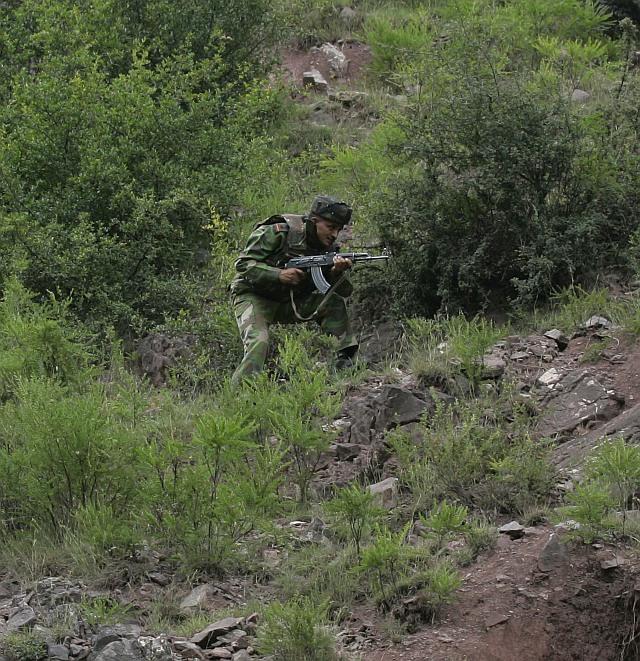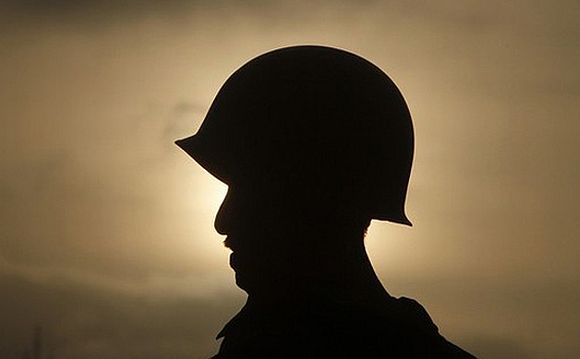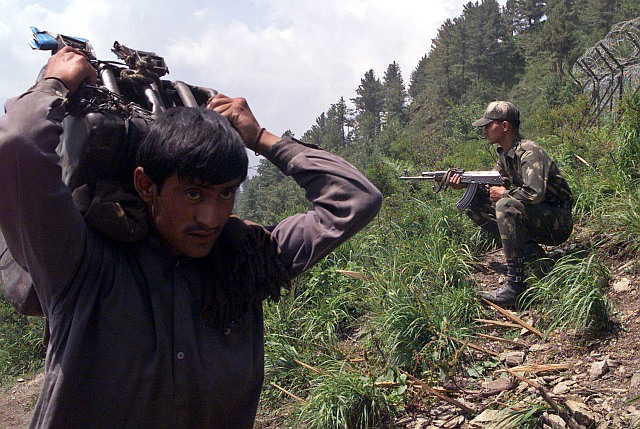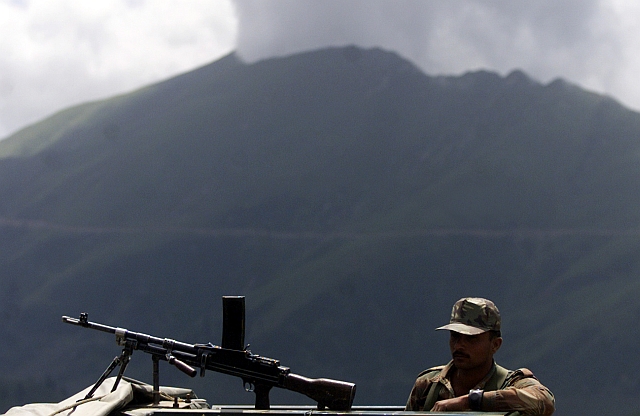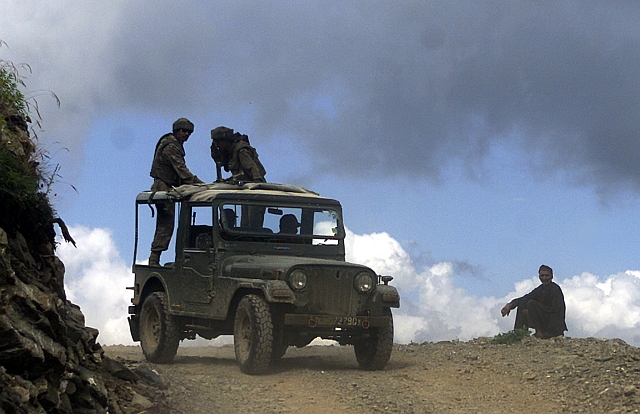 | « Back to article | Print this article |
LoC killings: The ceasefire is alive, not well
The sharp increase in firing between Indian and Pakistani posts on the Line of Control in Jammu and Kashmir raises the question: is the decade-old ceasefire of 2003 dead? If one side or both are staging cross-border raids and fire is being exchanged daily, it might seem that the ceasefire has irretrievably broken down, even if New Delhi and Islamabad have not acknowledged that, says Ajai Shukla
But only a complete memory blackout would lead one to conclude that the ceasefire is over. The firing today is a tiny fraction of what constituted everyday give and take on the LoC before 2003.
In 1999-2000, as an operations officer in a corps headquarters in J&K, it would take me two hours, from 5 to 7 am, every day taking reports from units on the LoC about firing incidents overnight. Tens, sometimes hundreds, of thousands of rounds were exchanged daily, including mortars and artillery.
It was an unusual day when no soldier was killed or wounded. This year Pakistan has violated the ceasefire 57 times, says the army. Before the ceasefire, that number would be crossed by breakfast on New Year’s Day.
Click NEXT to read further...
The question is: what should be done?
In this context, the ceasefire is alive, if not well. What we are seeing on the LoC is a phase of stepped-up ceasefire violations. This is not semantics; precision is important when the lives of soldiers are involved.
Should India react to Pakistani provocations by scrapping the ceasefire? The political Opposition, electronic media, and most security commentators declare, “Something must be done. Pakistan must pay a price. They cannot get away with killing our soldiers.”
This is inarguable, like declaring, “Motherhood is good.” Indeed Pakistan cannot be allowed to kill our soldiers with impunity. The question is: what should be done? Our response could be political, or military, or both.
We have experience in political retaliation against Pakistan. In 1999, a peace process began with Prime Minister Atal Bihari Vajpayee’s bus journey to Lahore. Just months later, that degenerated into war after India discovered the Kargil intrusions. But within two years, Vajpayee resumed political dialogue, inviting Pervez Musharraf to India in 2001.
That ended again within months, after the Parliament attacks caused India to mobilise for war. In April 2003, just months after the army was pulled back, Vajpayee offered a “hand of friendship” to Pakistan, a process that led to the LoC ceasefire on November 25, 2003.
Click NEXT to read further...
The 26/11 Mumbai attack caused Singh to deep-freeze dialogue
Like Vajpayee before him, Manmohan Singh too has trimmed his sails to the wind from Pakistan. In 2008, the 26/11 Mumbai attack caused Singh to deep-freeze dialogue. The defrost came barely a year later, at Thimphu in February 2010. So far, the dialogue has survived the LoC killings, New Delhi’s protests and both Parliaments’ tit-for-tat resolutions.
We see that both the National Democratic Alliance and the United Progressive Alliance always returned to the table with Pakistan. Vajpayee did so after a 1999 conflict that killed 527 Indian soldiers, and a near war in 2002 in which more than 800 soldiers died.
In 2010, Singh overcame his anger at the deaths of some 156 innocents in Mumbai. Only in opposition do the Congress and the Bharatiya Janata Party breathe fire; the flames are doused by pragmatism when it comes time to govern.
Given this trend, would it be wise to suspend or downgrade political ties with Pakistan for having killed seven Indian soldiers (two in Mendhar in January; and five in Poonch this month)? New Delhi’s track record -- the NDA’s even more than the UPA’s -- suggests that we would quickly return to the table. Suspending ties with Pakistan no longer carries credibility.
Click NEXT to read further...
Our annual LoC casualty count had reached triple digits after Kargil
That leaves the military option that is abrogating the ceasefire. Unquestionably, Pakistan would pay a heavy price in casualties on the LoC.
Equally certainly, the Air India flight from Srinagar would again start flying back coffins of Indian soldiers killed in cross-border firing. Our annual LoC casualty count had reached triple digits after the Kargil conflict. It has been in single digits since 2003.
True, the prospect of casualties should not deter a country from using force to pursue its national interests. Equally, no government should initiate hostilities without clear benefits. What would happen in Pakistan if India made the LoC “live” once again?
For the Pakistan army, this would be a godsend. Citing a military threat from India, it would re-locate troops from counter-terrorist operations in Khyber Pakhtunkhwa to the LoC.
The General Headquarters would rather reunify the army (and its jihadi friends) with the comfortable glue of anti-Indianism than continues to see it pulled apart by the contradiction of an “Islamic” army battling self-styled mujahidin.
Click NEXT to read further...
Our annual LoC casualty count had reached triple digits after Kargil
In terms of casualties, too, the generals would prefer a hundred dead a year on the LoC to 500 in the tribal areas.
While the lesson of Kargil is that GHQ, not Sharif, decides India policy, Pakistan has also moved on from 1999: democracy is stronger; Sharif is more influential; and the army commands less political clout. But it is hard to read the tea leaves in Pakistan. For now, Sharif has to be backed, if only for a lack of alternatives.
On the LoC itself, the tactical must be firewalled from the strategic. However heartless it sounds, the tactical weakness of a patrol that gets ambushed (these are all grown-up men with guns, remember?) cannot dictate a strategic response.
Army units deployed on the LoC must have freedom to retaliate at the tactical level, and the army chief says that they do. But the tactical ineptitude that was evident in both Mendhar and Poonch must evoke introspection and action within the army, not calls to end a mutually beneficial ceasefire.
TOP photo features of the week
Click on MORE to see another set of PHOTO features...
